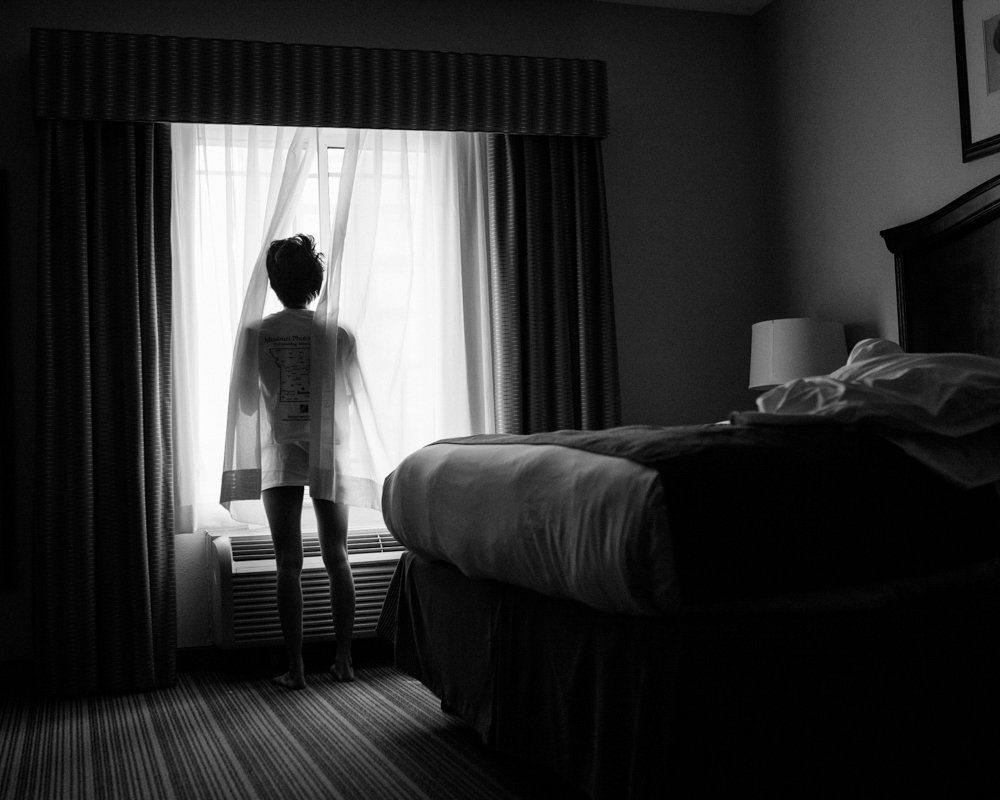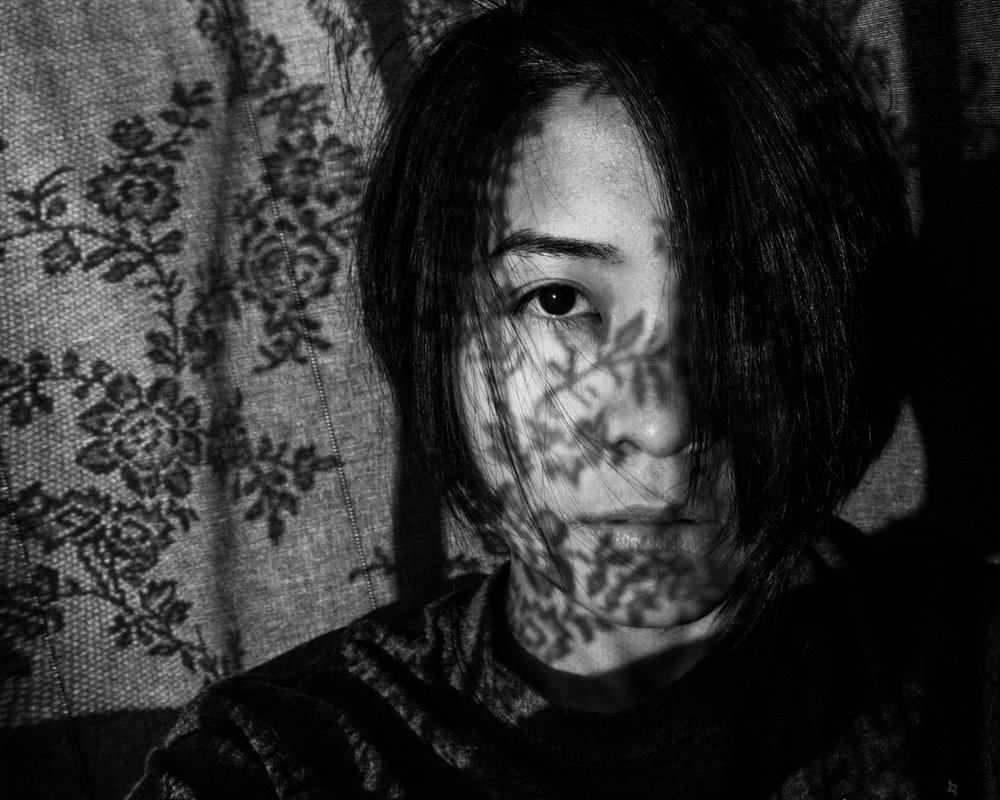Wildflower - A Conversation with Rosem Morton
Rosem Morton
Editor’s note: Rosem Morton is a 2022 Awardee of the Leica Women Foto Project. All images are made by Ms. Morton.
Rosem Morton’s acclaimed project, Wildflower, documents her journey of recovery from being raped and the trauma that followed. Rosem’s photographs and journal entries from Wildflower were published on CNN and NPR, and the project was a recipient of the 2022 Leica Women Photo Award and the Visa d’or Daily Press Award. In addition, Rosem founded Dear Survivor, an audio-visual aid for survivors of gender and sexual-based violence.
We talked about what it’s like to photograph through a difficult moment, her dedication to the truth and what it’s like having a Leica. We began by examining how making this work can be hard for those around us, especially our families, and how keeping things inside and not talking about them goes directly against what we are about right now.
September: “Rosem, what are you about right now?”
Rosem: I’m about living my life in the truest way possible, living it well, and living it honestly. I think that also demands the same from the people around me and it’s hard because we are all on different journeys and not always on the same page. We affect each other. Sometimes, this inspires others to be their true selves or other times, it pushes them away.
September: I couldn’t possibly relate to that more, but I think being that person is hard because I don’t know about you, but I have a lot of self-doubt like, “Okay, I’m trying to live my life and do my work in the truest way possible, but all these truths can be different and can be simultaneous." Do you ever have those moments of questioning and self-doubt?
Rosem: I think the process of learning people’s reactions to my work was enlightening. I assumed that people would be supportive of me airing out hard truths. This was not always the case. This uncertainty created a lot of doubt and has tempted me at times to tiptoe around things that are important. I had to remind myself that I am not doing this to hurt people. I am doing this as part of my road to healing. The varied reactions offered me important questions to consider: What does this mean for me? What does this mean for them? What are the ripple effects I am creating? Am I breaking down cycles of trauma or creating new ones? It is also why I am slowing down in producing my book. In the beginning, I wanted to put everything I have and put it in a book. Now, I want to be more intentional about it because I understand it affects people beyond myself. With that, I ask myself, what is my true message? What do I want to say? It is a big responsibility. I have to sit on it until I have the most concrete answer.
September: I relate to that so much. I feel the same way. I was just full force with my own book and now I’m just looking at everything and thinking, this is nowhere near finished. What is this saying? Am I healing? There are still so many things up in the air. You just have to slow down. It’s easy to have that feeling of getting it all out so you can heal and just be done, but then realize this isn’t quite right. Sometimes you feel so certain and sometimes you're just like “I’m done.” What do you wish people would ask you or say about your work? What do you wish they would say to get to a place where you feel fulfilled from it?
Rosem: I value having honest conversations with someone who understands why I do the work. Talking about trauma is hard. A big piece of this project is about wanting to be seen and heard. There is a part of me that recognizes that the acknowledgement of pain helps a lot in healing. Sometimes, when interviews or conversations are formulaic, it can take away from that. So, I hope and value having personal, validating and loving conversations. I don’t think there are things I specifically hope to be told or asked but I do feel honored and grateful when I am told this work helps someone else in their own journey.
September: Why are you so set on this idea of having people understand you and see this truth? Where does that come from?
Rosem: This comes from a place of self-repair. I feel like a lot of this work is a love letter to myself. As I reflect on the past and process it, I can see how some trauma themes have been a continuous cycle. I think about how things would have been different had I processed some things earlier. So, a big part of my self-repair is confronting hard truths to break my cycles of trauma. I feel like this all sounds idealistic but that’s the goal.
September: Is it idealistic or are we made to feel like it is? Because these conversations are hard. They aren’t easy and no one wants to talk about these things. What’s harder, not talking about these things and letting them fester or taking the responsibility and stepping up to talk about them?
Rosem: I think both things are hard, and everyone is in different places and timelines with how they process their own experiences. Where I am now, feels challenging at times. I have gotten used to things as time goes on. I wonder if you feel the same since you live and confront your hard truths with your family and demand that they work on the same things too. I feel like you facilitate the management of your feelings and your family’s feelings.
September: Do you feel like you’re also facilitating that with Wildflower? And with your husband?
Rosem: A trauma like this is devastating to a marriage. We are in therapy and there are things we are still processing five years later. I have learned that the pain and the trauma will always make itself known. Regardless of how we want to avoid it, the pain will come out in different ways. This processing is just a lot longer than I thought.
September: Often in times when I need to photograph most, these important crescendos in life can be high intensity. In order to intensely, but also recognizing its importance for the narrative of the story, I become disassociated so that I can take a picture. But afterward, I’m trying to hop back into my emotions I go back into this feeling of what the hell is real? Th at back-and-forth is so confusing. For example, in Wildflower there is a photo where you crashed your car and there were pieces of glass on the ground. Is that ever something you go through in Wildflower and how do you deal with that?
Rosem: Absolutely. In the beginning, I was early in my mental health journey. I didn’t realize I dissociate majority of the time. I didn’t know how to feel and recognize other emotions aside from being sad and happy. In some ways, this made the beginning of my project easier. I knew I was feeling something but didn’t understand it. So, I just took a picture. In the process of looking back at the images, I got to reprocess some feelings. I would think, “Oh, that was a really intense experience. I didn’t recognize it at the time, but I see that it was.” As the project continued, it took on different layers. I started wondering: Is this still for me? Is this for show? Is this just to continue the project? My partner was also good at keeping me in check. We would have discussions on the act of photography feeling like it's taken a more important role than living this actual experience. It’s been a journey in trying to parse these things out. I don’t always have the answer, but I have learned to give myself a lot of grace. I am okay with missing a moment. I have become more intentional with the images I add to this project. It has been a while since I have added another photo to this project, and I am okay with that.
September: Th at’s helpful for me to hear that there are those similar feelings and to have grace because I think I can be really hard on myself. It’s so complicated. What is it like shooting with a Leica?
Rosem: I love shooting with a Leica, it really is something I never thought I’d be able to do. I didn’t think I’d ever be able to touch a Leica. I’m happy and honored to have the chance.
September: How would you describe your style of image-making?
Rosem: I enjoy documentary style image making. I like getting to know people and immersing myself in their lives and experiences. I also enjoy being more experimental and intuitive in my work. I discovered this process while making my project, Wildflower. It's freeing and organic. I make a photograph and don’t get in my head about it.
September: Where do you feel like Wildflower is going? What do you see it evolving into?
Rosem: Wildflower started as an intuitive exercise. It became a bit formal in the middle and is now back into its intuitive form. It is interesting to see how the images talk to one another because of the layers, the depth and the years I have spent working on this project. Formally, I would like this project to be a book. I would like it to be exhibited in a way that is safe and nurturing for me and for the viewers. Both the exhibition and the book will serve as a semicolon. I know that the project will continue for the rest of my life but the public facing part of this work will come to an end. I am looking forward to sharing this end product and also looking forward to what it will become in the privacy of my home.
September: How did you decide that photography was your method of storytelling through this process?
Rosem: I picked up photography in college. I was taking casual photos for a long time. I thought about switching my major to photography, but it just wasn’t something you do culturally when you come from an Asian immigrant family. So, I took on my other calling which was nursing. I followed the nursing path for many years until I felt the repetitive nature of burn out surfacing. This is where photography came in, and I started to wonder if I could make a career out of it. I learned about photojournalism workshops and figured it was a great way to gauge if this was really a career for me. Th e year I was learning to photograph stories was the year I was sexually assaulted. The projects about other people became a project about me. This work helped me find healing, growth, purpose, community and a career. Here I am.









